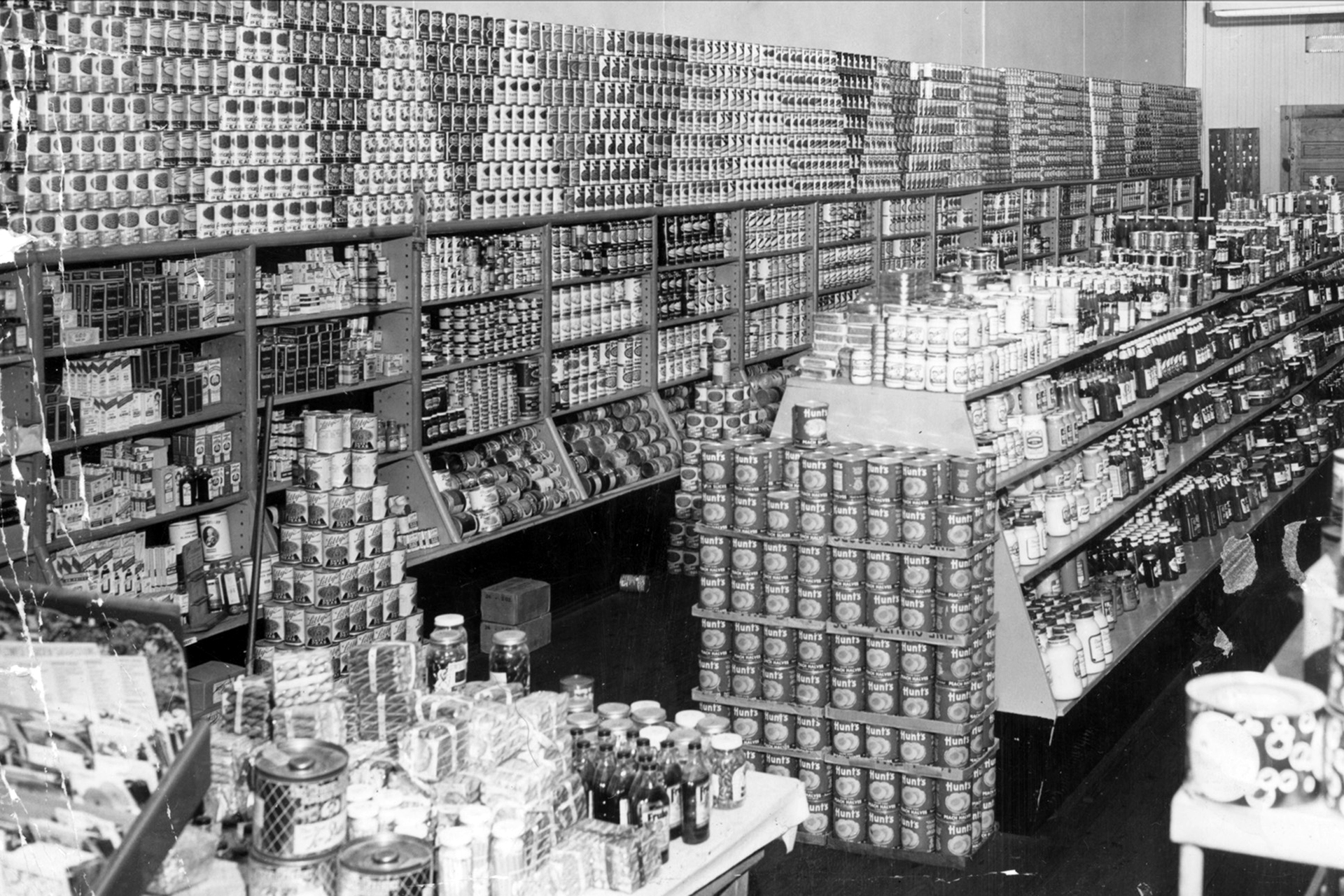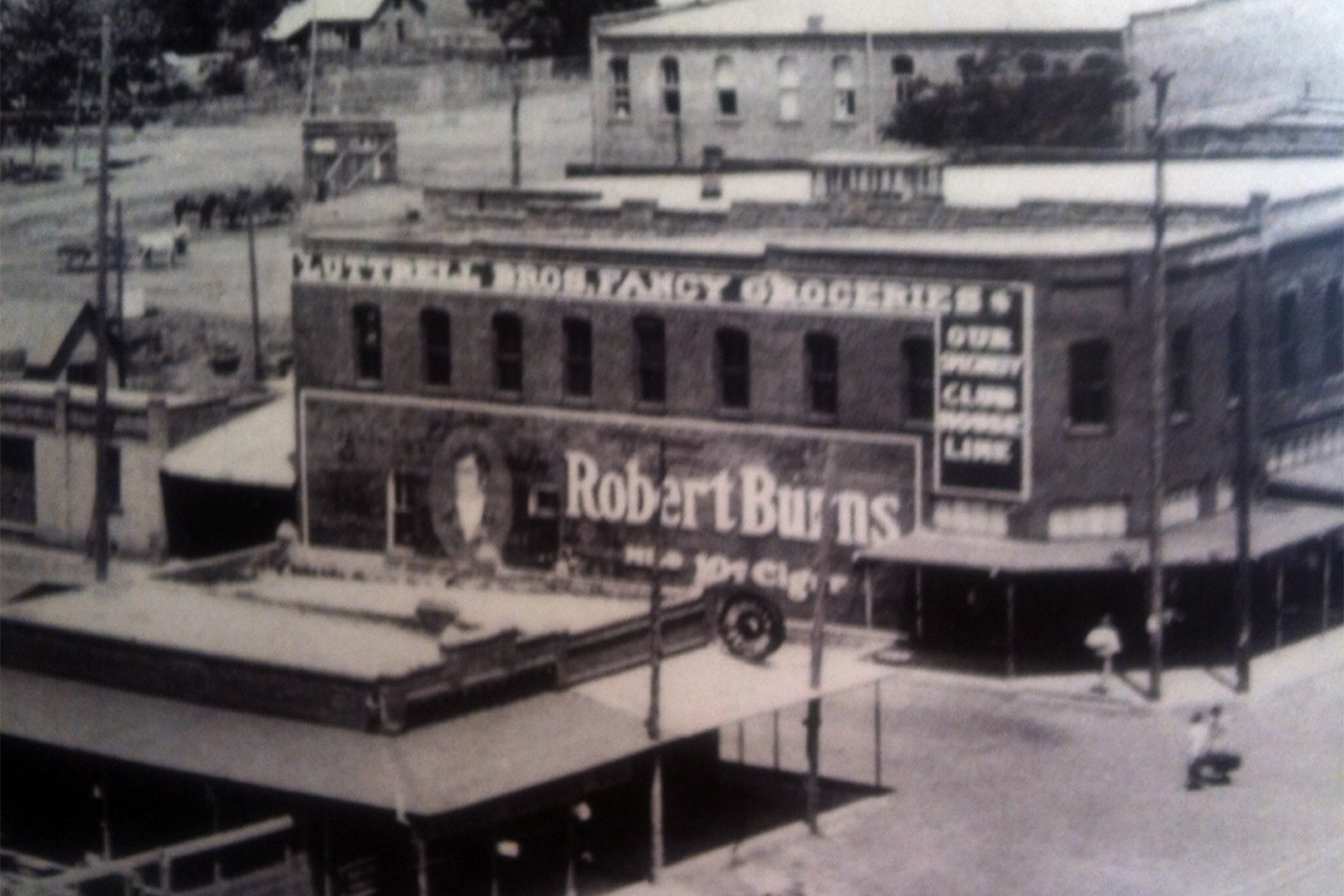
Luttrell Grocery to Observe their 40th Anniversary
This article appeared in the March 8, 1940 issue of the Arlington Journal.
Plans have been made by the Luttrell Brothers Grocery and Market for the best anniversary celebration that they have had during the 40 years that they have been doing business in Arlington. A total of 24 bushel baskets of groceries will be given away, special displays have been arranged, and many food representatives will serve free samples to the visitors.
According to Fred Luttrell the loaded bushel baskets of groceries will be the best that they have ever given away and will contain a variety of choice articles. Everyone is invited to come into the store and register for the baskets. No purchase is necessary. The registering will be done today and Saturday and the drawings will be Saturday at 10 a.m., 2 p.m. 4 p.m., and 6 p.m. At each drawing, 6 baskets of groceries will be given away.
A number of improvements have been made in the store in preparation for the anniversary sale. The major improvement has been the building of a new fresh vegetable stand. The stand which is in front of the large display window has been built considerably higher than the old one. The vegetables are kept fresh by two fine water sprays. The stand has been painted a light cream to match the interior of the store.
In 1900 when George Luttrell first opened his grocery store, it stood on a dusty street as Arlington was a small village without any graveled streets. Swinging kerosene lamps were used to light the store, there were many large barrels, and corn, tomatoes, sardines and salmon were about the only canned goods to be found.
Some farmer would yell, ―Whoa, and his team of horses would bring the wagon to rest amidst a cloud of dust in front of the store. He would take jugs in with him and would proceed to buy a jug full of molasses out of a barrel, a side of bacon, and the bacon wasn‘t sliced either, 100 pounds of sugar and a barrel of flour. After he had finished purchasing $40 or $50 worth of groceries he would load them in his wagon and drive to his farm near Cedar Hill or some such place. It would be some time before he would need to make another trip to the grocery store.
The housewife of the early 20th century would have been amazed if someone had told her that biscuits would some day be sold in cans, all ready to cook, that mayonnaise would be in jars, and potatoes would come in cans already fried.
But that isn‘t all. Packing house meat was unknown. Practically the only meats sold were salt bacon, chicken and turkeys. Chickens and turkeys sold by the head instead of by the pound. Turkeys sold for 50 cents or 75 cents a head and a dozen chickens brought about $1.50. Baked or boiled hams were unknown in the grocery market. Luttrell's had one of the first grocery refrigerators. It resembled an oversized old fashioned kitchen stove and it was used to keep eggs and butter fresh, 20 years ago. Ice was hauled from Fort Worth in a wagon and the ice man here kept it covered with sacks and straw.

Many things came in barrels, including white and brown sugar, but not powdered sugar, because there wasn‘t any. A few mixed candies came unwrapped. Today even the 1 cent pieces of candy come wrapped. The housewife of early 1900 would have been out of luck if she had depended on the store for her preserves and jellies, as they simply weren‘t to be found in the stores. Very little meal was sold as people took their corn to the mills to be ground.
Hog lard was carried in buckets, but scarcely any was sold as people made their own. Occasionally George Luttrell would get a case of pickles, but they were hard to sell and he remembers that the first olives that he got were unsalable and he had to give them away. Since people had to learn to like olives he says that avocados of today remind him of the olives of yesterday. According to Mr. Luttrell more and more people are learning to like avocados.
In those days there wasn‘t a single soda fountain in town and no milk was sold in stores. Crackers were bought by the 20 pounds and were sold from open boxes. After Luttrell had been in business a number of years he was able to buy the first cereal to be sold in his store. It was oatmeal and it was very crudely packed with some husks in it and it took 30 minutes to cook it, but it was wonderful at that time. Chicken feed was not sold in grocery stores. A little corn was ground for hogs as most of the residents of Arlington had their own hogs.
Usually about $500 worth of plug tobacco was kept on hand. A few cigars were sold and there were no cigarettes in Arlington. When cigarettes were first introduced they were quite the topic of conversation, and a person who had any was the talk of the town.
Dried fruits were a good seller and came in 50 pound boxes and sacks. Vegetables could not be found in the early store through the winter. Bananas sold slowly as people considered them a luxury. A few oranges were kept through the winter, with a large supply at Christmas when nuts could be bought also.
Today someone from the store goes to the market in the city every morning and chooses the choicest of fruits and vegetables from California, Washington, Colorado, Florida, Mexico and other places.
One man in town did all the delivering for all the grocery stores. Each store paid him $3 a month to deliver their groceries and he went by the stores each day and picked up the orders. One delivery man was sufficient for the town as people never ordered every day—much less went to the store several times a day.
During the past 40 years a great many changes have taken place, not only in the appearance of the store, but in the buying. People no longer buy 72 pounds of flour, but 6 and 12 pound sacks are the main sellers. One of the greatest changes has been that products are now as sanitary as possible. Merchandise is no longer sold from the open barrel, and cellophane has been a great help in keeping products sanitary.
